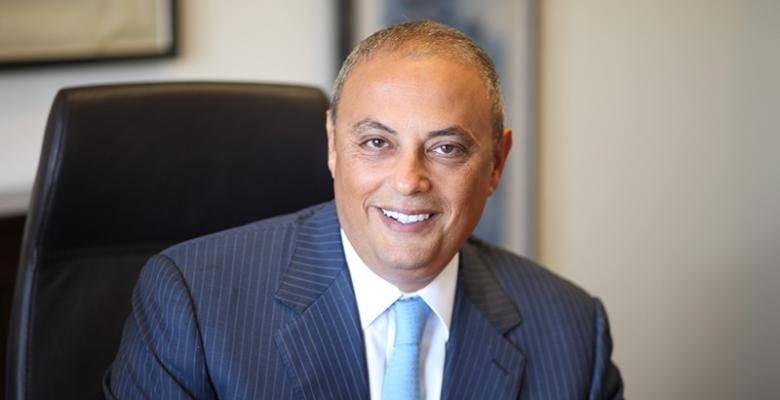5 Questions: Safwan Masri on His New Book ‘Tunisia: An Arab Anomaly’

In 2011, Tunisia’s Jasmine Revolution inspired the Arab Spring, a wave of protest movements across the Middle East and North Africa that held the promise of a new political future for the region. For all of its challenges, Tunisia today stands alone in its peaceful transition to a functioning democracy.
In his new book, Tunisia: An Arab Anomaly, Safwan Masri, executive vice president for Columbia Global Centers and Global Development, traces Tunisia’s history of reform in education, religion and women’s rights, arguing that the seeds for today’s relatively liberal and democratic society were planted as far back as the middle of the 19th century.
Masri, who is particularly interested in understanding the postcolonial dynamics in Arab societies, based the book on interviews with dozens of scholars, leaders, activists and ordinary citizens. But it is still quite personal for him, reflecting his own experiences and perspectives.
“I grew up in the Middle East and have spent most of my life in the U.S., living for the past decade in New York and Amman,” he said. “My analysis is influenced by my personal journey, as well as my relationship with religion, sexuality, and feminism.”
Q. Can we speak of Tunisian exceptionalism, and if so, in what terms?
A. Exceptionalism is a rather loaded term, but I would say, yes, there is something special and different about Tunisia. My argument rests on a hypothesis that the country’s history, geography, and tradition of reformism set it apart from the rest of the Arab world and help explain why it has been the only country to emerge out of the Arab Spring as a democracy. The country’s postcolonial foreign policy and achievements in women’s rights, education, and the moderation of religion’s role in society have been decisive factors in shaping its practical politics.
Q. Can the peaceful transition to democracy in Tunisia be repeated elsewhere in the Arab world?
A. One would hope that Tunisia could serve as a source of inspiration and that similar outcomes could materialize elsewhere in the Arab world. But this is unlikely to happen any time soon. Ingredients necessary for a successful democratic transition in Tunisia have been in the making for a long time. These factors not only have been missing in other Arab countries, but an opposite, regressive trajectory has been followed in much of the rest of the region. All of this makes Tunisia’s transition to democracy difficult to replicate.
Q. What are the differences between what transpired in Tunisia compared with Egypt in the wake of the Arab Spring?
A. The biggest difference was the role of civil society and the absence of military intervention in Tunisia. Whereas Tunisia boasts a strong labor movement and a small and relatively weak army, the opposite is true in Egypt, where a tradition of a strong military dates to the reign of Muhammad Ali from 1805 to 1848. Every Egyptian president since the revolution of 1952, with the exception of Mohamed Morsi, has been a military officer. The Tunisian military, on the other hand, has had neither the power nor the political desire to intervene in matters of governance and politics. It kept the peace during the 2010- 2011 protests, but stepped aside once the autocratic president Zine al-Abidine Ben Ali fled.
What Egypt had in military strength that obstructed a democratic process, Tunisia had in the potency of its labor movement, which facilitated its democratic transition. In Egypt, the unions, never as organized or influential as in Tunisia, worked against the protesters, siding with Mubarak and his regime in 2011.
Civil society has played a decisive role in various stages of Tunisia’s transition to democracy.
Following two political assassinations in 2013 and with Tunisia’s democracy under severe stress, four civil society organizations stepped in and saved the day. They were recognized for their pivotal role and awarded a Nobel Peace Prize in 2015.
Q. How has Tunisia’s history of progressive education shaped the country?
A. Immediately following independence in 1956, President Habib Bourguiba made it his top priority to educate his people, spending as much as one-third of the national budget on education. Tunisia’s education system has always been bilingual, coeducational, and infused with the liberal arts. Education was introduced gradually, ensuring that local teachers were trained properly. Education systems that evolved elsewhere in the Arab world were dominated by hyper-national rhetoric and religious discourse, inculcating students with absolute truths and undermining their opportunities to debate and think critically. The net result was that Tunisia emerged as a country of independent, cultured, and well-educated citizens who were more liberal minded and better prepared for democracy than their counterparts in the Arab region.
Q. What is the status of women in Tunisia?
A. The rights of Tunisian women have been more advanced relative to women in other Arab countries—even today—since the introduction of the family status code in 1956. The code banned polygamy, which is still legal across the Arab world, and introduced reforms to marriage, divorce, and custody laws. Women were granted the right to vote in 1957, and in 1973, abortion became legal. Advances in the status of women continue to be made. Just this summer, a new law that protects women from domestic abuse was introduced. The country is also examining the granting of equal rights to women in matters of inheritance. In September, it became legal for Tunisian women to marry outside their religion, another first for Arab Muslim women.